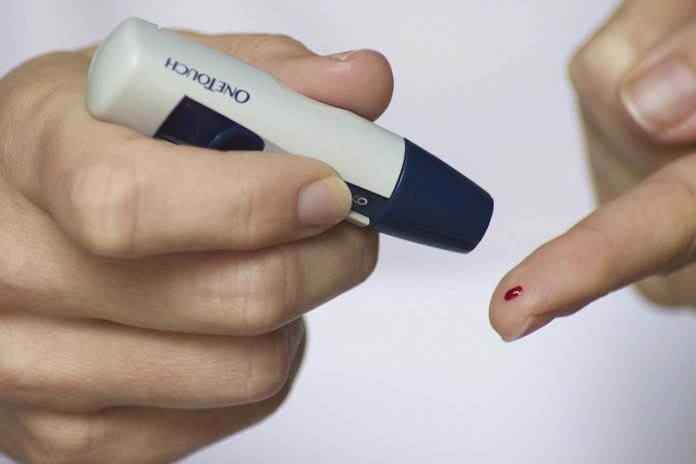
In a new study, researchers found a new simple blood test could detect earlier and more accurately if diabetic patients develop life-threatening vascular complications such as heart disease, blood vessel disease, and kidney failure.
The blood test used a revolutionary new approach that analyzed just a few drops of blood.
The research was conducted by a team from Northwestern Medicine and international collaborators.
It is the latest discovery in a new blood-testing technology that Northwestern scientists used most recently to detect liver cancer in patients and is now being tested in other major cancers.
About two-thirds of the 424 million diabetic patients worldwide die from vascular (i.e. blood vessel) complications.
Detecting these complications early could spur treatments to control the development of severe disease or death.
Current methods of diagnosing vascular complications in diabetic patients—analyzing a patient’s body mass index (BMI), the length of time they’ve had diabetes or a blood test analyzing how much waste product is present—are prone to error and don’t identify complications early enough to intervene with treatment.
According to the team, this blood test is different. With just three to five milliliters of blood, the non-invasive, clinically convenient test analyzes a patient’s DNA by using highly sensitive blood biomarkers.
If the diabetic patient has developed a vascular complication, the damaged blood vessels release new DNA into the bloodstream, which appears in the blood test and signals the problem to doctors.
The team examined 62 diabetic patients (12 patients without vascular complications, 34 patients with a singular vascular complication and 16 with multiple vascular complications).
The sensitive blood test was able to identify if a patient had vascular complications much more accurately than current diagnostic methods.
The team says this discovery is going to revolutionize how quickly and non-invasively we can identify potentially fatal complications in the hundreds of millions of diabetic patients worldwide.
Prior to this study, the scientists used the blood test to analyze more than 3,000 people’s blood samples to accurately identify liver cancer in patients without mistakenly flagging those merely at risk.
The blood test vastly outperformed current blood tests by detecting about 88% of tumors.
One author of the study is Wei Zhang, associate professor of cancer epidemiology and prevention.
The study is published in Clinical Chemistry.
Copyright © 2019 Knowridge Science Report. All rights reserved.



